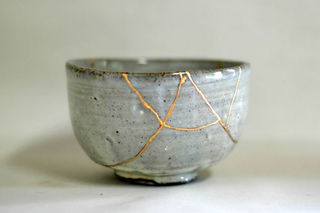Relationships
Walking on Eggshells With Loving Steps
In some very important ways, walking on eggshells is actually rooted in love.
Posted November 9, 2018

In my practice as a couples therapist, I frequently hear partners complain that they feel like they are walking on eggshells with each other. “Walking on eggshells” usually means that partners experience each other as so overreactive to even minor annoyances that in order to avoid conflict, they have to move around each other with a kind of constant fearful cautiousness. And while it’s true that some partners do overreact to feeling hurt, irritated, or angry in genuinely destructive ways, in my experience, such partners are not the norm.
And yet, this feeling of walking on eggshells is so common. So common that I suspect it may simply be one of the normal challenges of being in a close intimate relationship. In a truly intimate relationship, we are constantly negotiating an emotional space in which we sometimes sting and are stung. And while walking on eggshells may feel like a wholly negative thing, I’d like to explore the possibility that in some very important ways walking on eggshells is actually rooted in love.

Because we invite each other into an extraordinarily vulnerable space in our intimate relationships, we are necessarily exceptionally vulnerable to our partners, and our partners are exquisitely vulnerable to us — sensitive, fragile, exposed, precious. And we have invited that space for good and loving reasons. We want to be the one who holds with care and love. We want to be our beloved’s safe harbor in a hurtful world; and in turn, we want for our partners to be our safe harbor, the person with whom we feel safe being our authentic, vulnerable selves.
And so, because our partner is by design exquisitely vulnerable to us, we must move with extraordinary gentleness and care with them. Even when we are in a hurry. Even when we are angry. Even when we are exhausted, or hungry, or low on caffeine. Even when we have been stung and are hurt. Always, always, always, we must move with extraordinary care and gentleness. When that care is wholly motivated by love and commitment to our partners' well-being, then we experience it as pure and gentle and loving — like we do when we are caring for children, or someone who is in pain.

And, as in nearly all things, there is a continuum, and on the other side of great care is fear.
Because when we sting our partners, they react to being stung; we almost always are hurt by the hurt we have caused. Because we all have our ways of reacting to being stung, sometimes we sting back on purpose, and sometimes we withdraw (which has its own unavoidable sting in it). Regardless, we react, and that reaction is received by our partner, and it also stings. So, whether we mean to or not, it is almost universally true that when we sting our partners, we are stung in return. And since we are also exquisitely sensitive and exquisitely vulnerable to our partners, when we are stung back, it really, really hurts. And so we get defensive: “Why did you hurt me? I didn’t mean to hurt you?” And then we start to feel fear. We grow more and more afraid of even accidentally hurting our partners, because their reaction to being hurt hurts us so much. And there you have it, walking on eggshells. Rooted in our loving concern for our partners’ vulnerability, but tainted by our own reactivity to being stung. And in this place, we can go quiet and cold. We stop interacting as a way of trying to avoid cracking something that is by its nature fragile. We behave in artificial and inauthentic ways that have so much distance in them. And if we get stuck there, then the warmth and heat of our intimate connection grow cold, and the relationship starts to drain away.

So, what’s the answer? For me, my counsel more and more takes the form of the question, “What is the practice of intimacy?” So, what is the practice in this place of loving care versus walking on eggshells? I guess, for me, I would say it begins with gently holding our own reactivity to being stung. And there are several things to be held here.
First, how do we hold with gentleness and compassion the fact that we will regularly and frequently sting our beloved? How do we hold our own capacity to harm without becoming callous on the one hand, or perhaps overly filled with shame and guilt on the other? This is dynamic space that is always on the move and very much alive. We must fully own our power to harm. We must fully own that that power is a product of the vulnerability that we need to be present for intimacy to thrive.
Then, having owned that power, we must always, always, always be ready to take immediate and humble responsibility for the harm we have caused: “I am so sorry, my love, for hurting you. Please let me care for the hurt I have caused.” And perhaps only after we have taken care of and soothed the wound we have created do we offer to explain that we didn’t mean to cause harm, and that perhaps our intention, attention, and heart were somewhere else. Distracted, overwhelmed, irritable, hungry, or even ourselves also hurt. Not as an excuse, but simply as a description and reassurance that our harm was unintentional. Very much like when you accidentally hurt someone when you’re playing a sport together. You accidentally knock someone down or literally step on their foot, and you just very automatically stop and say, “I’m so sorry. Are you okay?” and help care for their injury. We don’t justify. We don’t over-explain. We don’t defend ourselves. We just apologize and care. Just apologize and care. And then we try to be more careful. Just like that: “Oh, sweetie . . . I hurt you. I’m so sorry. Please let me care for the harm that I have caused.” And then we just vow to be more careful.

In Buddhism, we talk about this process as “vow and repent.” We vow to live our responsibility to move with great and loving care in relation to our beloved’s vulnerability, and when we hurt them anyway, as we will inevitably and repeatedly do, we immediately repent and return to our vow. And this is our intimate practice. I vow to practice taking great and loving care of your vulnerability. And I will hurt you in small and sometimes big ways, and I vow that when I do, I will repent and take good and loving care of the harm I have caused. And this is how we walk on eggshells with loving steps.


